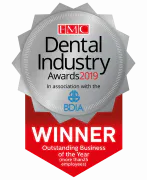Orthodontics is the area of dentistry concerned with the growth of the teeth, jaws and face. In excess of 200,000 children and teenagers in England and Wales have treatment within the NHS every year, with growing numbers of adults and young people seeking treatment on a private basis.
The purpose of orthodontic treatment is to make the best of your teeth. This includes allowing you to bite correctly, eat more comfortably, and to care for your teeth and gums more easily. And your smile will benefit, too.






